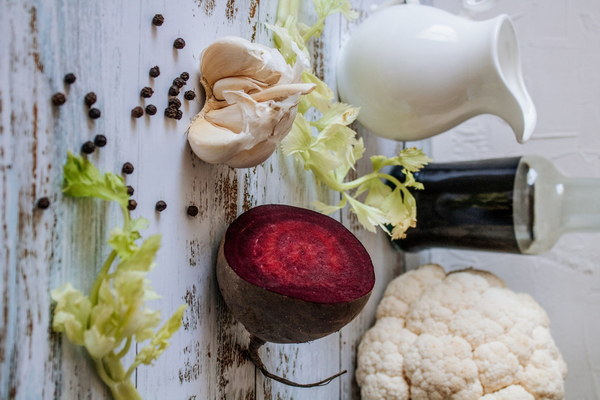The Liver-Protective Power of Rhizoma Puerariae A Natural Remedy for a Healthy Liver
Introduction:
In the realm of traditional Chinese medicine, Rhizoma Puerariae, commonly known as the kudzu root, has long been revered for its numerous health benefits. One of its most notable properties is its liver-protective effects, making it a popular herbal remedy for those seeking natural support for their liver health. This article delves into the science behind the liver-protective power of Rhizoma Puerariae and explores how it can be integrated into a holistic approach to liver care.
The Liver and Its Importance:
The liver is a vital organ responsible for processing nutrients, filtering toxins, and producing bile, which aids in the digestion of fats. It also plays a crucial role in regulating blood sugar levels, storing vitamins, and producing cholesterol. Given its multifaceted functions, it is no surprise that liver health is of paramount importance.
The Role of Rhizoma Puerariae:
Rhizoma Puerariae, derived from the root of the Pueraria lobata plant, is rich in bioactive compounds such as isoflavones, which are believed to be the main contributors to its liver-protective effects. These isoflavones have been shown to exhibit several beneficial properties that can support liver function:
1. Antioxidant Activity:
The liver is constantly exposed to oxidative stress due to the processing of various substances. The antioxidants present in Rhizoma Puerariae help neutralize free radicals, thereby reducing the oxidative stress on liver cells and promoting their health.
2. Anti-inflammatory Effects:
Chronic inflammation is a major factor in liver disease. The anti-inflammatory properties of isoflavones can help reduce inflammation in the liver, thereby mitigating the progression of liver conditions such as non-alcoholic fatty liver disease (NAFLD) and liver cirrhosis.
3. Hepatoprotective Effects:
Isoflavones in Rhizoma Puerariae have been found to have a hepatoprotective effect, which means they can help protect the liver from damage caused by toxins, medications, and other harmful substances. This property makes it a promising natural remedy for liver disorders.
4. Regulation of Liver Enzymes:

The liver produces enzymes that are essential for various metabolic processes. Rhizoma Puerariae can help regulate these enzymes, ensuring they are functioning optimally and contributing to overall liver health.
5. Detoxification Support:
The liver is the body's primary detoxification organ. The bioactive compounds in Rhizoma Puerariae can support the liver's detoxification processes, aiding in the removal of harmful substances from the body.
Clinical Evidence:
Numerous studies have investigated the liver-protective effects of Rhizoma Puerariae. Here are some key findings:
- A randomized controlled trial published in the journal Phytotherapy Research found that Rhizoma Puerariae supplementation improved liver function in patients with NAFLD.
- Another study published in the Chinese Journal of Integrative Medicine demonstrated that isoflavones from Rhizoma Puerariae can inhibit the progression of liver fibrosis.
- Research published in the Journal of Ethnopharmacology suggested that the anti-inflammatory and hepatoprotective effects of Rhizoma Puerariae could be beneficial in the treatment of chronic hepatitis B.
Integrating Rhizoma Puerariae into Liver Care:
While Rhizoma Puerariae can be a valuable addition to liver care, it is essential to approach its use holistically. Here are some suggestions for integrating it into a liver-healthy lifestyle:
- Consult with a healthcare professional before starting any new supplement regimen, especially if you have pre-existing liver conditions or are taking other medications.
- Incorporate Rhizoma Puerariae into a balanced diet rich in fruits, vegetables, and whole grains.
- Avoid excessive alcohol consumption, as it can exacerbate liver damage.
- Engage in regular physical activity to support liver function and overall health.
- Manage stress levels, as chronic stress can negatively impact liver health.
Conclusion:
The liver-protective power of Rhizoma Puerariae offers a promising natural approach to supporting liver health. By harnessing the antioxidant, anti-inflammatory, and hepatoprotective properties of isoflavones, this traditional Chinese herb can be an invaluable component of a comprehensive liver care strategy. While more research is needed to fully understand its potential, the existing evidence suggests that Rhizoma Puerariae is a valuable herb worth considering for those looking to promote liver health.









